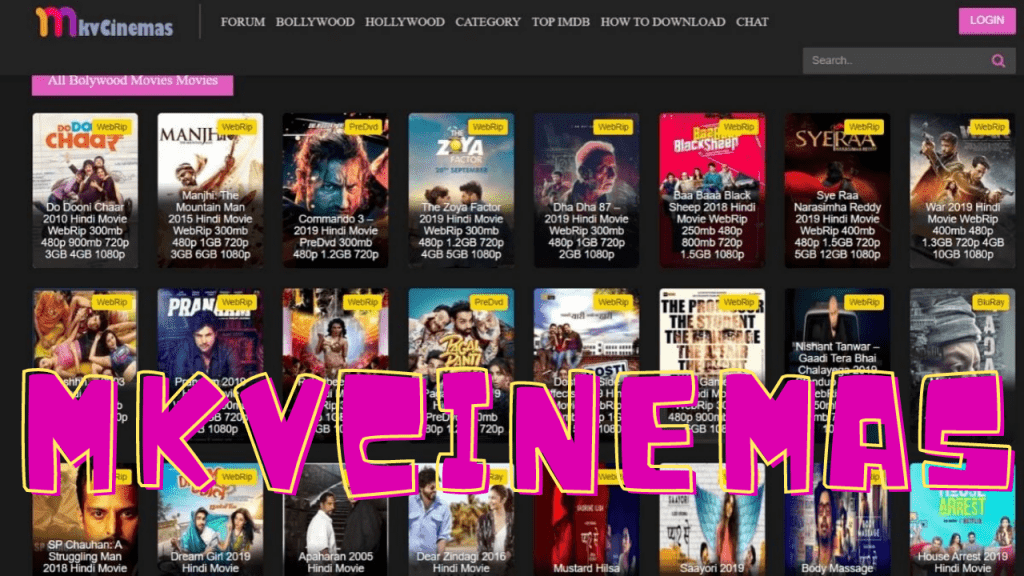MKV movies have gained immense popularity in recent years due to their superior quality and flexibility. As a multimedia container format, MKV (Matroska Video) supports an array of video codecs and audio tracks, making it a preferred choice for movie enthusiasts. This article will delve into the intricacies of MKV movies, exploring their advantages, how to play them, and tips for converting other formats to MKV. Whether you're a casual viewer or a dedicated film buff, understanding MKV is crucial in today’s digital age.
With the rise of high-definition content and the need for efficient storage, MKV files have become increasingly relevant. They allow for high-quality video and audio without excessive file sizes, making them ideal for streaming and downloading. This article aims to provide comprehensive insights into MKV movies, offering valuable information on their features, benefits, and best practices for use.
Join us as we explore the world of MKV movies, including their technical specifications, compatibility, and how to enhance your viewing experience. By the end of this guide, you will have a solid understanding of MKV movies and how to make the most of them.
Table of Contents
- What is MKV?
- Advantages of MKV Movies
- How to Play MKV Movies
- Converting Other Formats to MKV
- Best MKV Players
- Understanding MKV File Structure
- Common Issues with MKV Movies
- The Future of MKV Movies
What is MKV?
MKV, short for Matroska Video, is an open-source multimedia container format that can hold an unlimited number of video, audio, picture, or subtitle tracks in a single file. This flexibility makes it a popular choice for storing movies and TV shows. Here are some key characteristics of MKV format:
- Supports high-quality video and audio.
- Can contain multiple audio and subtitle tracks.
- Compatible with various codecs, including H.264, H.265, and VP9.
- Allows for easy editing and manipulation of media files.
Advantages of MKV Movies
There are numerous advantages to using MKV movies, making them a popular choice among consumers:
1. High Quality
MKV files can store high-definition video and audio, providing an exceptional viewing experience.
2. Versatility
With support for various codecs and multiple tracks, MKV files can cater to diverse user preferences.
3. Subtitle Support
MKV files can include multiple subtitle tracks, which is especially useful for international audiences.
4. Open Source
As an open-source format, MKV is free to use and continually updated by a community of developers.
How to Play MKV Movies
Playing MKV movies is easy, as many media players support this format. Here are a few popular options:
- VLC Media Player: A free, open-source player that supports a wide range of formats, including MKV.
- KMPlayer: A versatile media player that can handle MKV files with ease.
- Media Player Classic: A lightweight player that is compatible with MKV and other formats.
Converting Other Formats to MKV
Converting videos from other formats to MKV can be beneficial for maintaining quality and compatibility. Here are some popular tools for conversion:
- HandBrake: An open-source video transcoder that allows users to convert videos to MKV format.
- FFmpeg: A powerful command-line tool for video and audio processing that supports MKV conversion.
- Any Video Converter: A user-friendly tool that supports conversion to and from MKV format.
Best MKV Players
Here’s a list of some of the best MKV players available:
- VLC Media Player: Known for its versatility and robust support for various file formats.
- PotPlayer: Offers a wide range of features and customization options.
- GOM Player: A user-friendly player with built-in codec support.
- SMPlayer: A free media player that includes built-in codecs and supports MKV files.
Understanding MKV File Structure
The MKV file structure is designed to be highly efficient and flexible. It can store various types of data in a single file, including:
- Video tracks
- Audio tracks
- Subtitle tracks
- Metadata
This structure allows for easy navigation and playback of MKV files, making it a preferred format for movie enthusiasts.
Common Issues with MKV Movies
While MKV is a versatile format, users may encounter some common issues:
1. Playback Problems
Not all media players support MKV files, leading to potential playback issues.
2. Corrupted Files
Like any digital file, MKV files can become corrupted during download or transfer, resulting in playback errors.
3. Codec Compatibility
Some MKV files may use codecs not supported by certain players, causing playback issues.
The Future of MKV Movies
As technology continues to evolve, MKV is likely to remain a popular format due to its flexibility and high-quality output. With increasing demand for high-definition content and the growth of streaming services, MKV will play a key role in the future of digital media distribution.
Conclusion
In summary, MKV movies offer numerous advantages, including high quality, versatility, and support for multiple tracks. As a popular multimedia container format, it is essential for movie enthusiasts to understand how to play and convert MKV files. By utilizing the right players and conversion tools, you can enhance your viewing experience and enjoy your favorite movies without hassle.
We encourage you to leave your thoughts in the comments below, share this article with fellow movie lovers, or explore our other articles for more insights into the world of digital media.
Final Thoughts
Thank you for reading this comprehensive guide on MKV movies. We hope you found it informative and helpful. Be sure to visit our site again for more articles on the latest trends and tips in the world of movies and technology!
You Might Also Like
Understanding ViralMMS: A Comprehensive GuideUnderstanding The Formula Of Hydroxide: A Comprehensive Guide
Pinay Flix: The Ultimate Guide To Filipino Entertainment Streaming
The Life And Career Of Jameliz Benitez: An Inspiring Journey
Morgan Stanley Summer 2025: Opportunities And Insights
Article Recommendations


